The marketing landscape is evolving at an unprecedented pace, and 2025 is set to be a year of significant transformation. To stay competitive, companies must anticipate these trends and adapt their strategies accordingly. This article explores the key marketing trends for 2025, offering insights on where businesses should focus their efforts to achieve success. We’ll delve into the importance of partnering with experienced marketing agencies, the rise of personalized and audiovisual content, and the value of personalized face-to-face events to enhance client retention.
1. Partnering with Experienced Marketing Agencies
In an increasingly complex marketing environment, partnering with a reputable marketing agency that possesses corporate experience and strategic vision can be a game-changer.
- Strategic Expertise: Such agencies bring a wealth of knowledge in crafting long-term strategies that align with your business goals.
- Corporate Experience: Their familiarity with corporate structures and processes ensures seamless integration and execution of marketing initiatives.
- Innovative Solutions: Access to the latest tools and trends allows for innovative approaches that keep your brand ahead of the competition.
Tip: Invest in a marketing agency that not only understands your industry but also has a proven track record of delivering strategic results.
2. Advanced Artificial Intelligence and Automation
Artificial Intelligence (AI) will continue to revolutionize marketing, enabling unprecedented levels of personalization and efficiency.
- Personalization at Scale: AI allows companies to offer highly tailored experiences by analyzing customer behavior and preferences in real-time.
- Process Automation: Automating repetitive tasks and data analysis frees up resources for creative strategy development.
Tip: Incorporate AI technologies into your marketing efforts and ensure your team is trained to leverage these tools effectively.
3. Personalized and Audiovisual Content
The demand for personalized content, particularly in audiovisual formats like short YouTube clips and podcasts, is on the rise.
- Value-Adding Content: Creating content that educates, entertains, or solves problems enhances audience engagement and loyalty.
- Short-Form Videos: Platforms like YouTube, TikTok, and Instagram Reels are ideal for sharing quick, impactful messages.
- Podcasts: Audio content allows brands to connect with audiences during commutes or while multitasking.
Tip: Develop a content strategy that focuses on personalization and utilizes various formats to reach your audience where they are most active.
4. Augmented and Virtual Reality Experiences
Augmented Reality (AR) and Virtual Reality (VR) will become integral to marketing strategies.
- Immersive Interaction: Customers can virtually try products or experience services before purchasing.
- Enhanced Storytelling: AR and VR offer innovative ways to tell your brand story and engage users.
Tip: Explore AR and VR technologies to create memorable experiences that differentiate your brand.
5. Focus on Sustainability and Social Responsibility
Consumers increasingly expect companies to demonstrate social and environmental responsibility.
- Green Marketing: Promoting sustainable practices and eco-friendly products will be essential.
- Ethical Transparency: Honest communication about operations builds trust and brand loyalty.
Tip: Integrate sustainability into your business model and authentically communicate your efforts.
6. Personalized Face-to-Face Events
In a digital world, personalized in-person events can significantly enhance client retention.
- Exclusive Experiences: Hosting tailored events for clients strengthens relationships and fosters loyalty.
- Direct Feedback: Face-to-face interactions provide valuable insights into customer needs and preferences.
Tip: Organize events that offer real value to attendees, such as workshops, seminars, or appreciation gatherings.
7. User-Generated Content (UGC) and Online Communities
UGC will be vital for building engaged and loyal communities around your brand.
- Active Participation: Encouraging customers to create and share content boosts authenticity and trust.
- Community Building: Online forums and groups facilitate interaction between customers and the brand.
Tip: Implement initiatives that motivate customers to share their experiences and foster a sense of community.
8. Social Commerce and Live Shopping
Social media platforms will continue to enhance their e-commerce capabilities.
- Integrated Shopping Experiences: Enabling purchases directly within social apps streamlines the customer journey.
- Live Shopping Events: Real-time interaction during shopping broadcasts increases engagement and conversion rates.
Tip: Utilize social commerce features to make it easier for customers to discover and purchase your products.
9. Voice Search and Virtual Assistants
Optimizing for voice search will be crucial as the use of voice-enabled devices grows.
- Conversational SEO: Adapting content to match natural language queries improves visibility.
- Brand Presence on Virtual Assistants: Developing skills or actions for devices like Alexa or Google Assistant enhances accessibility.
Tip: Revise your SEO strategy to include voice search optimization techniques.
10. First-Party Data and Privacy
With heightened privacy concerns, first-party data becomes increasingly important.
- Ethical Data Practices: Collecting data directly with consent builds trust and ensures compliance.
- Customer Relationships: Transparent data usage policies strengthen customer relationships.
Tip: Focus on building robust first-party data strategies while respecting user privacy.
11. Experience Marketing (XM)
Providing exceptional customer experiences will be a key differentiator.
- Holistic Customer Journey: Optimize every touchpoint to deliver consistent and positive experiences.
- Real-Time Feedback Loops: Implement systems to gather and act on customer feedback promptly.
Tip: Prioritize customer experience initiatives to enhance satisfaction and encourage brand advocacy.
12. Micro-Influencers and Authenticity
Micro-influencers will play a significant role due to their close connections with niche audiences.
- Authentic Collaborations: Partnering with influencers who align with your brand values increases credibility.
- Engaging Content: Micro-influencers often have higher engagement rates, leading to better campaign performance.
Tip: Identify and build long-term relationships with micro-influencers relevant to your target audience.
13. Video Marketing and Ephemeral Content
Video content, especially in short and temporary formats, will dominate social media.
- Snackable Content: Short videos capture attention quickly and are easily shareable.
- Stories and Temporary Posts: Ephemeral content creates urgency and encourages frequent engagement.
Tip: Incorporate a mix of video content types to keep your audience engaged across platforms.
The year 2025 will present unique challenges and opportunities in the marketing sphere. Companies that embrace these trends—investing in strategic partnerships with experienced marketing agencies, focusing on personalized and value-adding content, and fostering direct relationships through personalized events—will be well-positioned to thrive. Emphasizing technology, personalization, sustainability, and customer experience will be fundamental. Now is the time to innovate and prepare for a future where marketing is more interconnected and customer-centric than ever.

